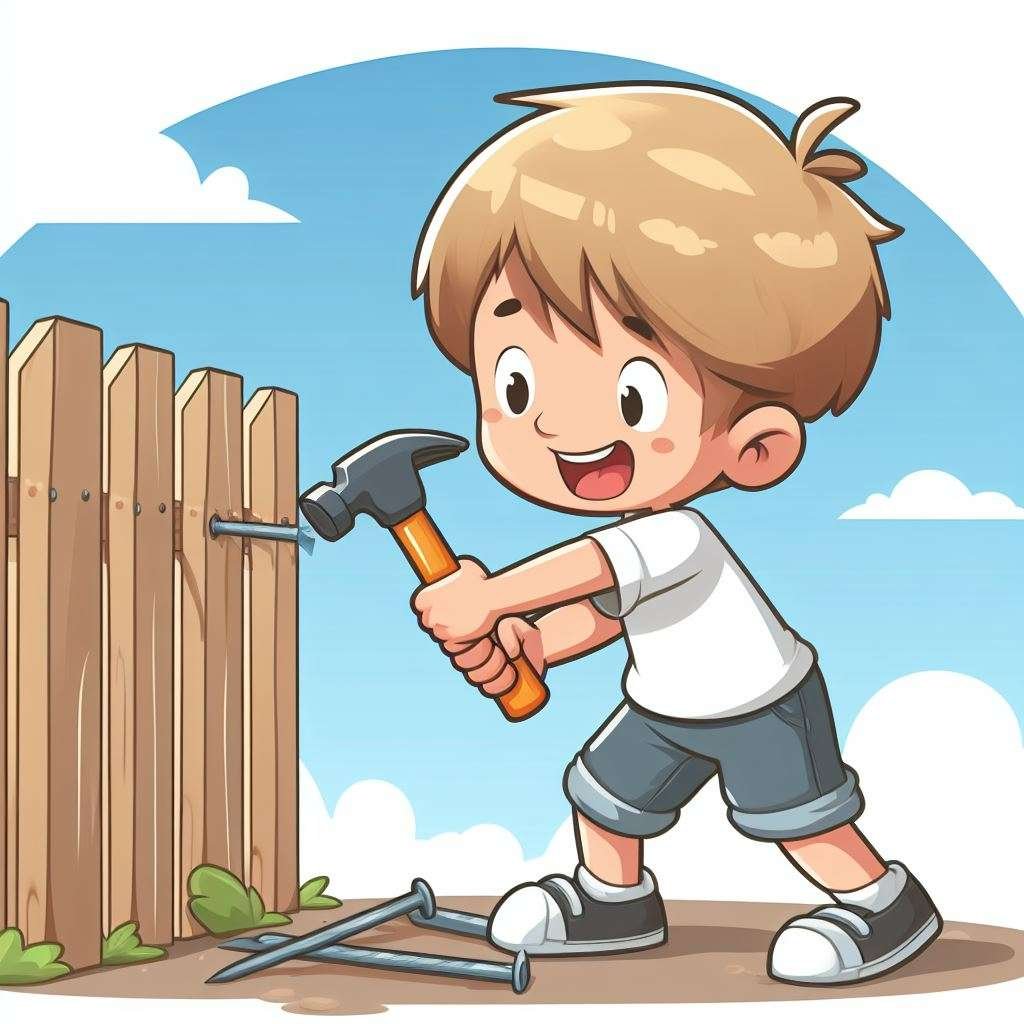In a quiet village nestled among rolling hills, there lived a young boy named David. David had a quick temper and a sharp tongue. He often lashed out at others with hurtful words, causing pain and sadness in his wake. His parents worried about his behavior and tried many times to teach him kindness and patience, but their efforts seemed to fall on deaf ears.
One day, David’s father decided to teach him a valuable lesson. He took his son to the backyard, where there stood a wooden fence. The fence was old and weathered, with many cracks and knots in the wood.
“David,” his father said, “I want you to hammer a nail into this fence every time you lose your temper or say something unkind.”
David nodded, and the task began. Over the next few days, David’s temper got the best of him, and he hammered nails into the fence with each outburst. The fence soon had dozens of nails hammered into it.
As the weeks passed, David’s father noticed a change in his son’s behavior. David was growing tired of hammering nails into the fence, and he started to think twice before he spoke unkind words. He remembered his father’s words about the impact of his actions.
Gradually, the number of nails hammered into the fence decreased. David was learning to control his temper and choose his words more carefully. The day finally arrived when David managed to keep his temper in check and didn’t need to hammer any nails into the fence.
His father smiled proudly and said, “Now, David, for each day you can control your temper and speak kindly, I want you to remove one nail from the fence.”
David eagerly began to remove the nails, one by one. Some came out easily, while others were stubborn and left behind small holes in the wood.
When all the nails had been removed, David looked at the fence, which was now covered in holes and scars from the removed nails. His father asked, “What do you see, David?”
David gazed at the fence and replied, “I see a fence filled with holes, Father.”
His father nodded and continued, “Each nail you hammered into the fence represented unkind words and lost tempers. Now, while you can remove the nails, the holes they left behind will always remain. Just like the fence, people can carry the scars of hurtful words and actions with them for a long time.”
David realized the powerful lesson his father had taught him. He understood that words, once spoken, could leave lasting wounds. From that day forward, he made a promise to himself to use his words for kindness and to control his temper.
Moral of the Story
“A Hole in the Fence” teaches us that unkind words and angry outbursts can leave lasting scars, just like the holes in the fence. It emphasizes the importance of controlling one’s temper and using words with care and kindness, as words have the power to hurt or heal.

